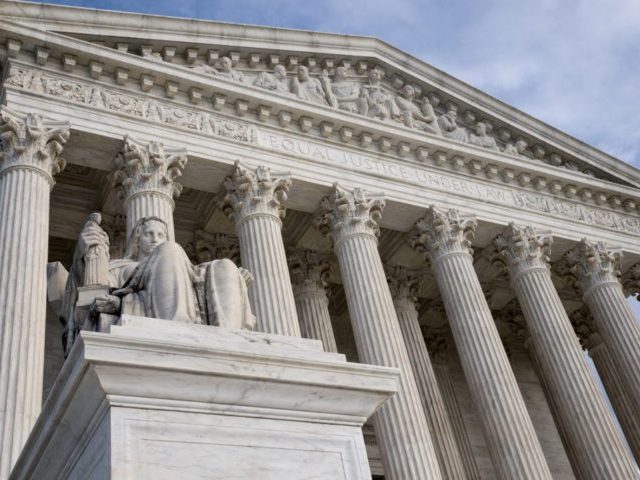WASHINGTON—On Friday, the U.S. Supreme Court agreed to hear three cases about Christian ministries claiming a church exemption to federal retirement and pension laws in what is expected to be an important religious liberty case.
Advocate Health Care Network, St. Peter’s Healthcare System, and Dignity Health are all faith-based healthcare providers. They are nonprofit organizations which provide health care to the poor and needy, and they do it as their faith-based ministry to the world.
The primary federal law that governs how employers safeguard their employees’ retirement funds and obligations is the Employment Retirement Income Security Act of 1974 (ERISA). This law requires retirement funds to be managed according to certain standards and principles to ensure that retired employees do not lose their pensions or retirement accounts due to mismanagement by the companies at which they worked during their careers.
But the Constitution’s fundamental rights to religious liberty do not permit the federal government to dictate to churches, houses of worship of other faiths, and ministries how to handle their affairs. Those faith-based institutions can only pursue their mission through the people who work for them, so if the government could dictate the terms of that employment, it could control how those churches and ministries fulfill their calling.
ERISA recognizes this constitutional bar by declaring the pension plans of churches are exempt from this federal law. Since 1977 (shortly after ERISA was enacted), the IRS and other federal agencies have interpreted this church exemption broadly enough to cover faith-based organizations like the healthcare groups in these lawsuits.
But trial lawyers are suing those ministry groups, trying to take away that exemption by arguing that faith-based organizations like Christian hospital ministries are not religious enough to qualify for the exemption because their plans were not established by a single church. (For example, Advocate Health Care is associated with both the Evangelical Lutheran Church in America and the United Church of Christ, rather than a single religious denomination.)
In an interesting twist, these trial lawyers are also demanding that these ministries be required to pay for all the attorneys’ fees arising for this litigation.
The Christian ministries lost in each of these three cases before separate U.S. Courts of Appeals. Now the Supreme Court has agreed to resolve the ERISA question on a nationwide basis.
Kelly Shackelford is CEO of First Liberty Institute, the largest law firm in America exclusively dedicated to protecting religious liberty for all Americans. Speaking exclusively to Breitbart News, Shackelford says, “We are hopeful that the Supreme Court will enforce the broadest possible protection for religious liberty and exempt church plans from government regulation. The government—including courts—has no business interfering with the retirement plans of clergy or other religious ministry employees.”
It is unclear how the current Supreme Court vacancy could impact these cases, and far from certain that a ninth justice will be confirmed to sit on the Court before this case is heard, which is expected to be scheduled for March or April of next year.
The three cases are consolidated under the name Advocate Health Care Network v. Stapleton, Docket No. 16-74.
Ken Klukowski is senior legal editor for Breitbart News. Follow him on Twitter @kenklukowski.

COMMENTS
Please let us know if you're having issues with commenting.